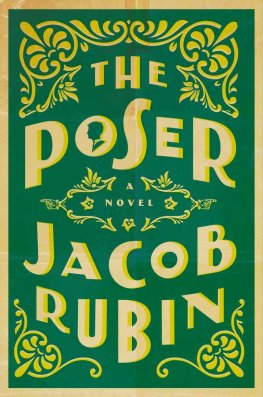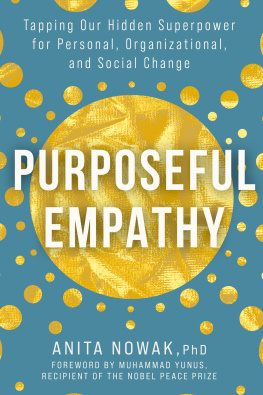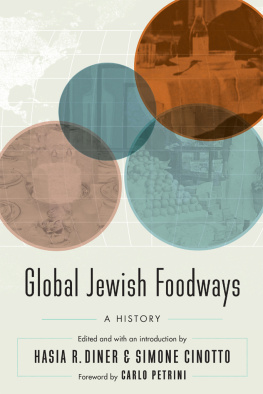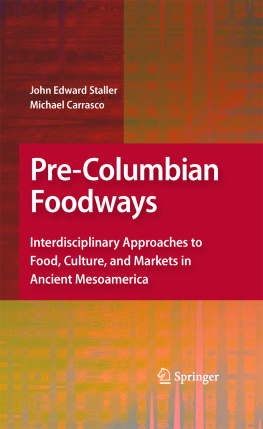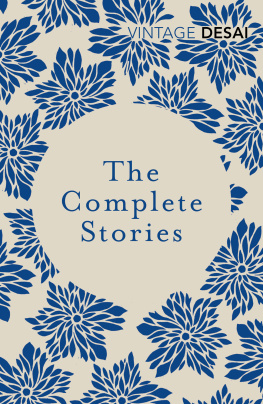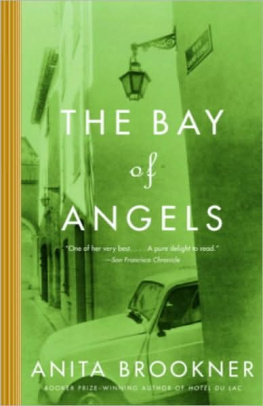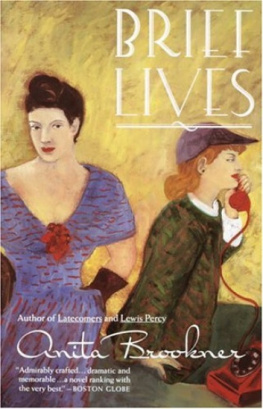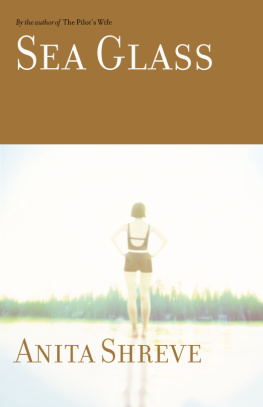Foodways and Empathy
Person, Space and Memory in the Contemporary Pacific
Series editors: Prof. Jrg Wassmann (University of Heidelberg, Institute of Anthropology), Dr. Verena Keck (Goethe University Frankfurt, Institute of Anthropology)
Advisory board: Prof. Pierre R. Dasen (University of Geneva, Department of Anthropology of Education and Cross-Cultural Psychology), Prof. Donald H. Rubinstein (University of Guam), Prof. Robert Tonkinson (The University of Western Australia, Department of Anthropology), Prof. Peter Meusburger (University of Heidelberg, Department of Economic and Social Geography), Prof. Joachim Funke (University of Heidelberg, Department of Psychology)
The many different localities of the Pacific region have a long history of transformation, under both pre- and post-colonial conditions. More recently, rates of local transformation have increased tremendously under post-colonial regimes. Yet, until now, research has concentrated on the macro- or culturally specific aspects of globalization, while neglecting actual actors and their perspectives of social change. This series supplements earlier work through the integration of cultural research with psychological methodologies, linguistics, geography and cognitive science.
Volume 1
Experiencing New Worlds
Jrg Wassmann and Katharina Stockhaus
Volume 2
Person and Place: Ideas, Ideals and Practice of Sociality on Vanua Lava, Vanuatu
Sabine C. Hess
Volume 3
Landscapes of Relations and Belonging: Body, Place and Politics in Wogeo, Papua New Guinea
Astrid Anderson
Volume 4
Foodways and Empathy: Relatedness in a Ramu River Society, Papua New Guinea
Anita von Poser
Volume 5
Biomedical Entanglements: Conceptions of Personhood in a Papua New Guinea Society
Franziska A. Herbst
Foodways and Empathy
Relatedness in a Ramu River Society, Papua New Guinea
Anita von Poser
First published in 2013 by
Berghahn Books
www.berghahnbooks.com
2013, 2016 Anita von Poser
First paperback edition published in 2016
All rights reserved. Except for the quotation of short passages for the purposes of criticism and review, no part of this book may be reproduced in any form or by any means, electronic or mechanical, including photocopying, recording, or any information storage and retrieval system now known or to be invented, without written permission of the publisher.
Library of Congress Cataloging-in-Publication Data
Poser, Anita von.
Foodways and empathy: relatedness in a Ramu River society, Papua New Guinea / Anita von Poser.
pages cm. (Person, space and memory in the contemporary pacific; volume 4)
Includes bibliographical references and index.
ISBN 978-0-85745-919-0 (hardback) ISBN 978-1-78533-220-3 (paperback) ISBN 978-0-85745-920-6 (ebook)
1. Bosmun (Papua New Guinean people)FoodSocial aspects. 2. Bosmun (Papua New Guinean people)Kinship. 3. Bosmun (Papua New Guinean people)Social life and customs. 4. FoodSocial aspectsPapua New GuineaRamu River Valley. 5. KinshipPapua New GuineaRamu River Valley. 6. Ramu River Valley (Papua New Guinea)Social life and customs. I. Title.
DU740.42P68 2013
305.89912dc23
2012037865
British Library Cataloguing in Publication Data
A catalogue record for this book is available from the British Library
ISBN: 978-0-85745-919-0 hardback
ISBN: 978-1-78533-220-3 paperback
ISBN: 978-0-85745-920-6 ebook
In Memory of Ndombu and Kose
List of Illustrations
Figures
Nugap
Samar
Kopri and Nambindo
Mbandu
Kermban
Kaso
Jealous Women
Kose
Throwing Sago
Dwelling-House on Unsafe Ground
Scraping Sago Pith
Sago Pudding
Kinship Diagram
Preparing a Gift of Sago
A Brother Protects His Sister
Planting PalmsKeeping Kin
Seres Garden in 2004/05
Feeding Namtaaxe
Sharing Sago
Girls Cooking in a Tree
Female Paddle Showing Nzari
Learning to Dance
Group of Plate Bearers
Cleaning Fish
Emplaced Foodways
Welcoming the Dancers
Burning a Tattered Rice Bag
Map
Lower Ramu River
Acknowledgments
Several people were instrumental in the creation of this book, contributing their thoughts, their time, their ideas, their support, and their valuable criticism.
First of all, I am indebted to many Bosmun and to the Rom in particular:
Dia olgeta lain long ples,
mi laik tok tenkyu tru long yupela olgeta. Fes taim mi kam na stap, mi no bin save wanem ol lain stret bai stap na bai soim wanem kain pasin long mi. Asples bilong mi long Germany i bin stap longwe tru long wara Ramu na mi no bin save wanem kain pasin stret bai stap long dispela hap. I go go go go nauem naumi skelim pinis: Ol gutpela lain tasol i stap! Pasin bilong ai i stap! Yumi kaikai wantaim, yumi wokabaut wantaim, yumi krai lap wantaim, yumi tok gudbai long yumi yet. Yumi tok helo gen long yumi yet. Na olsem na, em dispela tupela ples, ples Bosmun na ples Germany, ol i muv kam klostu nau long tupela yet. Vut bilong mi i pulap long amamas tasol. Dispela wok mi pinisim pinis, em bikos ol gutpela tingting tasol yupela i salim i kam long mi i bin strongim mi stret. Olsem na, mi tok: nda yaao !
I am deeply grateful to Jrg Wassmann and Verena Keck. Both, in their individual ways, encouraged me to travel to Papua New Guinea. They were my teachers, and a lot of what I heard from them while studying anthropology in classrooms became true as I set out on my own path with Bosmun. Their concern and support have been of a personal and cordial kind that went well beyond their role as academic instructors. I would also like to express my appreciation to Holger Jebens for spontaneously consenting to read through an earlier version of this book.
My research was made possible with the generous and structural support of several institutions and persons in charge: I conducted fieldwork at the Lower Ramu River in 2004/05 and 2006 as part of the project Person, Space and Memory in the Contemporary Pacific (see Wassmann & Stockhaus 2007) started by Jrg Wassmann and funded by the German Volkswagen Foundation. A teaching grant from the German Academic Exchange Service (DAAD) allowed me to return to Papua New Guinea in 2008 on a project on Subject-Related Partnerships with Institutions of Higher Education and Developing Countries; I am glad to have participated in a promising collaboration between the Department of Anthropology in Heidelberg and the Faculty of Arts at the Divine Word University in Madang (see Keck et al. 2008). In 2008, I was also given a grant by The Society for Endangered Languages (GBS) in Germany for the purpose of returning my linguistic data to Bosmun. As a doctoral fellow of the Marsilius-Kolleg (2008/09), an Initiative of Excellence of the University of Heidelberg, I was able to fully concentrate on writing the first version of Bosmun ethnography. Here, I would like to especially thank Thomas Fuchs. Gnther Schlee of the Max Planck Institute for Social Anthropology in Halle / Saale and Mirko Sporket of the Max Planck Institute for Demographic Research in Rostock supported my plans to conduct research in Papua New Guinea in 2010 as a postdoctoral fellow of the Max Planck International Research Network on Aging. Upon this return, I had the opportunity to discuss my findings with the people of Daiden. I would also like to express my appreciation to Birgitt Rttger-Rssler for taking me on as part of her team at the Institute of Social and Cultural Anthropology, Free University of Berlin, and for giving me all the freedom that is needed to combine teaching, motherhood, and the preparation of a book.



